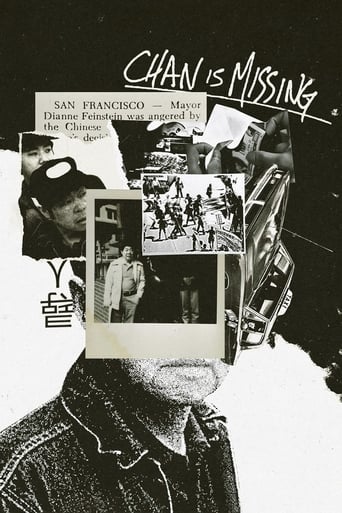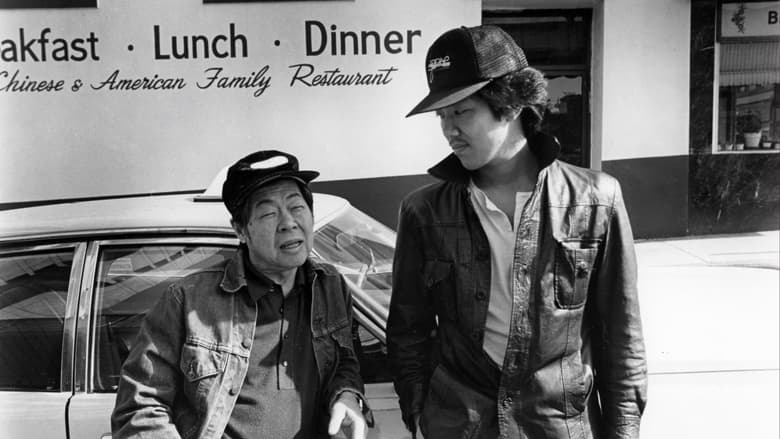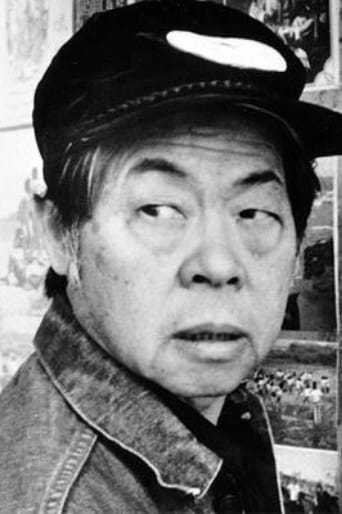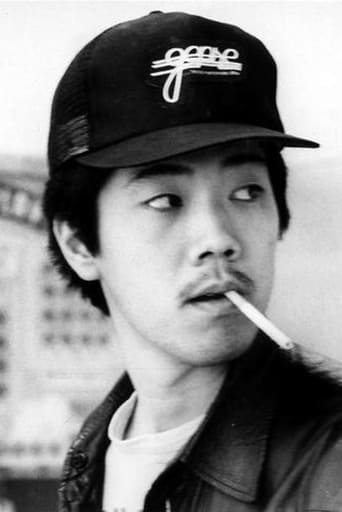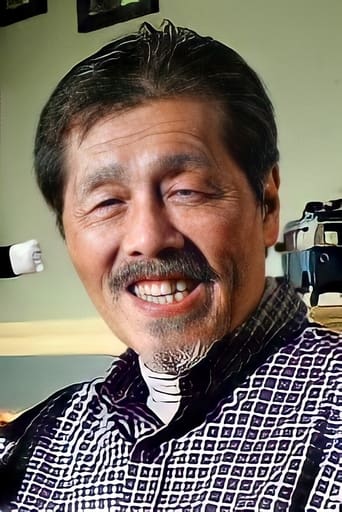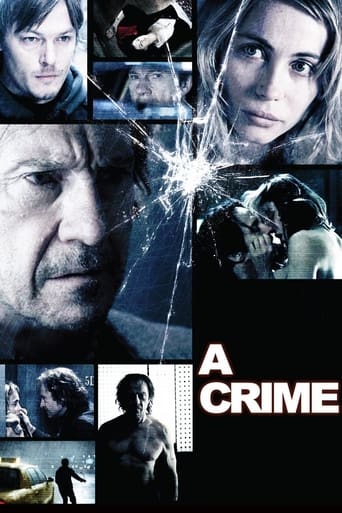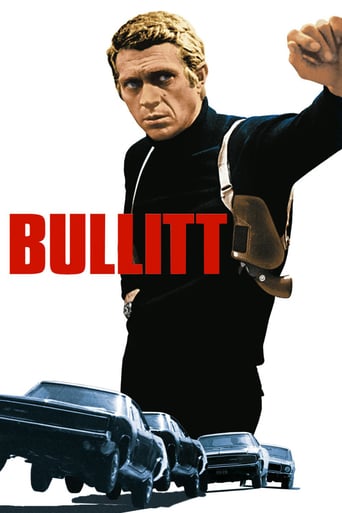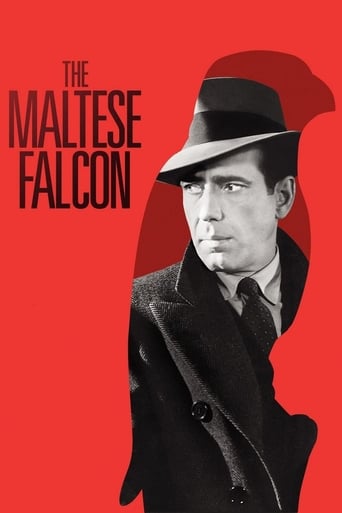Chan Is Missing (1982)
Two cabbies search San Francisco's Chinatown for a mysterious character who has disappeared with their $4000. Their quest leads them on a humorous, if mundane, journey which illuminates the many problems experienced by Chinese-Americans trying to assimilate into contemporary American society.
Watch Trailer
Cast


Similar titles
Reviews
You won't be disappointed!
It’s not bad or unwatchable but despite the amplitude of the spectacle, the end result is underwhelming.
The joyful confection is coated in a sparkly gloss, bright enough to gleam from the darkest, most cynical corners.
It's a feast for the eyes. But what really makes this dramedy work is the acting.
Here is a film like a Zen koan. Made for $20,000.00 dollars, it is obvious that the director Wayne Wang chose to focus on thematic content rather than be overly concerned about production values. This is a thoughtful and amusing story about a couple of cabbies who fork over $4,000.00 in cash to Chan Hung to go into business for themselves, and then spend the rest of the film looking for him. The more they search for him, the more we find ourselves entering upon a kaleidoscopic journey through the Chinese American community. We find everyone we meet reflecting Chan in some form or fashion without encountering Chan himself.The whole affair moves like a mystery of some kind. Wood May plays the older cabbie Jo and Marc Hayashi plays Steve. You could almost say they are a cinema verite' version of Charlie Chan and his number one son. But then we would be missing the point. After all, Chan is missing. What we have in his place is a vacuum filled with meditations about assimilation and the best things that the American and Chinese cultures have to offer each other. We see all this in terms of the unusual characters that are presented to us.Once again there is a Film Noir feel to this piece as Jo and Steve move about Chinatown talking to Chinese locals who may know Chan or have seen him. CHAN IS MISSING proved to be both a critical and commercial success, especially considering its low budget beginnings. Jo and Steve piece together clues that tantalize and lead to dead ends, seem to be getting nearer to Chan and possibly flirting with foul play or real danger of some kind to themselves or their missing business associate. People call in the middle of the night and Chan's wife seeks an audience with them. But despite all this, the air of mystery surrounding Chan's disappearance never seems to completely dissipate.The upshot reveals the Chinese and Chinese American people in that space that Chan has left for Jo and Steve to explore. There is no real guile to this, just a chain of interesting encounters that fans out visually across the spectrum that is the Chinese American people. The more Jo and Steve focus on Chan, the more our point of view expands to include more than just Chan and any stereotypical impressions we might have about Asian people garnered from the movies and television. The people we meet in CHAN IS MISSING seem realer than that. That is the triumph of CHAN IS MISSING. We go looking for him and find all his people holding up a mirror to us.Finally viewing the Chinese and Chinese American people without preconceived notions and finding them peering back at us without any masks we marvel with Jo and Steve. Could it be that Chan is nowhere to be found? Should we find Chan at this point would it add anything more to our discovery?One of the things I'll never forget is when Jo and Steve meet with Chan's daughter as she returns to them their money. She tosses off a line to them that makes her seem like a Chinese American trying to sound like a Caucasian American attempting to talk like an African American. These scene said worlds about assimilation in a diverse American society and was a novel experience of insight.
If you expect a movie to tell a story, to develop characters, to have actions, and their motivations, look elsewhere. If you're content to listen to bits of conversation between people you haven't been introduced to, who don't like each other much, who can't figure out what their lives are about, try this movie.Near the end of the film, the guy who's been looking for the missing person all film says, not only he doesn't know what happened to him, he doesn't know who he is.At one point the searcher and his partner receive a few thousand dollars that, we presume, somehow came from the missing person. We don't know why the money arrives, nor why the guy doesn't show up.If you want a missing person who just stays missing, whom no one seems to know much, look here for it.Or, if this is all you want, why see a movie? There's plenty similar "just life" going on everywhere, just as pointless.
Take a small, clever film, paste on adjectives like "whimsical," "charming," "endearing," "insightful," and you'll have a movie that many will run away from in droves. For Chan Is Missing, that would be too bad because they'd be missing something whimsical, charming, endearing and insightful. This was Wayne Wang's first feature movie, made with a $20,000 budget and shot in glorious 16-mm black and white. It's a detective story, sort of. Two cabbies in San Francisco's Chinatown, Jo (Wood Moy) and Steve (Marc Hayashi), discover Chan Hung is nowhere to be found. They had given him $4,000 to invest in a business deal. For the next few days they are going to try and track him down through Chinatown's alleys and side streets, the cheap hotels, the middle-class apartments, the sweating kitchens and the shops and the community halls. Jo is the older one, short and a bit heavy, quiet and thoughtful. Steve is young, hip and at times impatient. As they start looking and meeting people, we quickly realize that this is no real detection mystery. We wind up quickly liking the two cabbies, and liking everyone they meet. Before long, we even like what we hear about Chan. The movie is really not about finding Chan Hung and the missing $4,000. It's all about Wayne Wang's attempt to look at issues of assimilation and identity among Chinese-Americans. He does this with a light hand. The discussion Jo and Steve have with a young lawyer who is trying to describe why her client is in trouble with the police -- because he answered questions in a Chinese way about a traffic accident -- is deadpan, totally confusing to Jo and Steve as well as us, and priceless. In a sweltering kitchen we meet a young short-order cook who wears a Saturday Night Live T-shirt, sings "fry me to the moon," and really dislikes having to keep turning out orders of sweet-and-sour pork. We meet Chan's wife and his friends who are interviewed usually by Jo. We learn some about those who like Taiwan and those who like mainland China. The "flag-waving incident" keeps coming up but no one really knows much about it. Everything is a series of encounters with people of all types in Chinatown, handled with warmth and observant interest. In my view, the film slows a bit at the end as Jo, who has been serving as our narrator, tries in his own way to sum up things. What we're left with is an intelligent and charming movie about how people from one strong culture move and live within another strong culture, and how most of them manage in both. Did Jo and Steve ever find Chan and their $4,000? You'll have to watch the movie...but that's hardly the point of it, is it?
This is the best depiction of cultural contact I have seen on film. The title points to several layers of meaning, some of which are missed by many viewers. Most obviously, this is a film about real Asian Americans, not the ersatz and offensive characters of the Charlie Chan films. That Chan is missing but not missed. At the same time, the film is a spoof of Charlie Chan films, with Jo the bumbling detective and Steve the number one son, in an outrageously profane update. Finally, the character in the film, Chan Hung, is missing, and his disappearance is symbolic of a passing that is to be mourned much more than the deservedly-forgotten Charlie Chan movies. Chan Hung is the original immigrant, who struggled to survive in his new country but could never shake his love of his original one. His missing image floats through the film like a lost soul, and adds poignance that helps to counterpoint the ribald comedy. Jo is the bridge, feeling Chan's loss, but fully rooted in America: an "ABC"--American Born Chinese. Steve is the impatient third generation, angry that the plight of the immigrants may overshadow the struggles that U.S.-born Asian Americans continue to face. The conclusion of the mystery is as inevitable as it is sad, but the spirit of the characters who inhabit this film is truly inspirational. One of a handful of films that define an essential part of the American experience.

